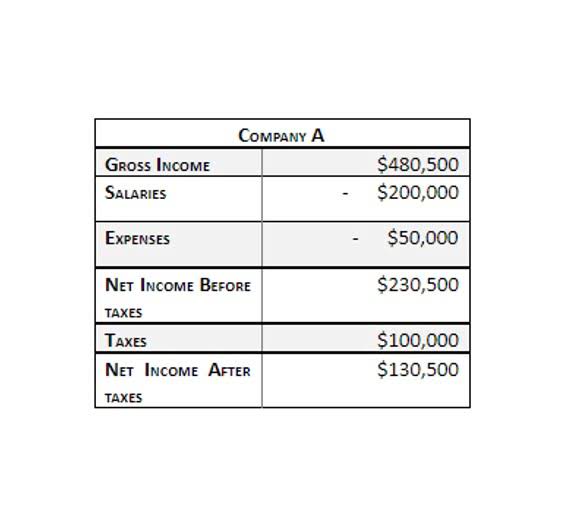
Bookkeeping is the process of recording and organizing all financial transactions, from tithes and offerings to utility payments and payroll. In churches, this practice must be tailored to reflect donor intent, nonprofit accountability, and tax compliance. Larger churches with various funding sources should have an accountant on staff. An accountant will help inform your church’s board of all financial changes and requirements. Fund accounting helps churches show accountability because bookkeepers can break down revenue and expenses Debt to Asset Ratio into separate funds.
Set up proper internal controls

This method is designed to track the amount of cash assigned for different ministry purposes. It doesn’t rely on the same processes for managing finances at a for-profit business. Proper accounting practices are the bedrock of a church’s financial health and longevity. While many religious organizations emphasize their spiritual mission, neglecting the financial side of church programs can lead to dire consequences. Poor accounting not only jeopardizes your church’s tax-exempt status but also erodes its financial stability and undermines your ability to serve the community effectively. We are a firm of consultants and accountants for churches here to help you save money and gain efficiency, all while staying compliant with governmental regulations.
Churches vs. Businesses
Accounting for churches extends beyond mere bookkeeping; your church treasurer or finance secretary holds the keys to the kingdom! Their work will secure your church’s future and help advance your mission. On the other hand, for-profits sell services or products to maximize profits for the owners. Since they have different goals, they have different bookkeeping practices.
- Talk with your finance committee chair if you feel there are areas that need strengthened.
- If your organization needs to hire someone to manage the books, you might want to consider outsourcing instead.
- Fund accounting requires bookkeepers to create different funds for separate revenue and expenses.
- By understanding what sets church accounting apart from conventional methods, your organization can achieve both spiritual and financial success.
- Accountants should have accounting degrees, church experience, and regulatory knowledge.
- Its all-in-one functionality and affordability make it particularly valuable for small to mid-sized churches seeking simplicity without sacrificing essential features.
Maintaining Separate Bank Accounts for Different Funds
Maybe you’re a church bookkeeper wondering how you’ll ensure your cash flow church’s finances are managed well. Or you might be a church leader who wants to get a broad overview of how your church accounting system should work so you can hire the right church bookkeeper. For over two decades, our team has focused exclusively on serving churches and religious nonprofits, developing deep expertise in their unique financial management needs. In this post, we’ll explore how proper accounting practices can strengthen your church’s financial management and decision-making capabilities.

Implementing Fund Accounting Principles in Your Church’s Financial Management
Enter your assets and liabilities, your chart of accounts, and your restricted funds with their current balance. Depending on your church’s needs, you may need to enter past financial transactions for more detailed reports. Solid church accounting increases confidence, provides transparency, and contributes to the growth of your church. Prioritizing accountability clears the way for instilling parishioners’ trust that their donations, gifts, and tithes are used appropriately. In theory, you could show any congregation member where their money goes at any time. ChurchShield has partnered with Summit Church for nearly a decade, working hand in hand with us to manage the many complexities of our organization.
- A well-organized bookkeeping system not only supports day-to-day operations but also reinforces the church’s commitment to faithful stewardship.
- Fund accounting enhances financial transparency and aids compliance with financial accounting standards board (FASB) guidelines.
- Unlike other nonprofits, most churches don’t have to file an annual tax return via IRS Form 990.
- Aplos also includes tools for managing events, sending contribution statements, and filing IRS-compliant donation reports, all from a user-friendly dashboard.
- Cloud-based fund accounting tools tailored for ministries are recommended for managing multiple funds and revenue streams.
Unique Tools for Better Financial Management

Creating a P&P manual will help these transactions roll over easier and most importantly keep your internal controls in place. Lisa London, CPA is a financial professional and accountant with more than two decades of accounting, business, and training experience. Lisa has a unique ability to distill complex accounting information church accounting guidelines into the heart of what the end user needs to know in a way that is easy to understand. From Auditor to CFO to church volunteer, Lisa is known as the “Accountant Beside You” to many churches, businesses, and organizations. Years ago, non-profits would list their total assets on a balance sheet.

Diocesan Financial Management: A Guide to Best Practices
You need to have a statement from every bank account your church has, as well as statements for other assets, as well as debts. Whether you’re a finance novice or a seasoned church treasurer, let’s uncover the secrets of fund accounting together in the post below… Churches must train and educate staff, ensuring they know how to use their financial technology and are updated on the latest compliance regulations. However, they must still file a yearly tax return to comply with federal requirements.
- Now that we’ve covered bookkeepers versus accountants and the language of money, it’s time to build your church’s financial sanctuary.
- Selecting the right church accounting software can be a significant asset to the financial management of religious organizations.
- Also, gather a list of your church’s restricted funds and each fund balance.
- Realize there are many other churches out there, and all of them believe in their mission.
You just need to reinvest all of your funding into your church, meaning any revenue that doesn’t go directly toward covering expenses should be placed in a reserve fund like a savings account. If you find that your church is reliant on just one or two major funding sources, consider diversifying your revenue streams by exploring additional church fundraising ideas. This can increase your church’s financial stability so you have enough revenue to fund all of your activities if unexpected costs or circumstances arise.

It’s imperative financial professionals understand the current GAAP rules and any changes that happen throughout the years. Your organization’s budget is free to evolve the further into the year you get, so don’t feel like you have to remain rigid with your initial plan. It’s important for those in charge to be aware of upcoming plans and initiatives, as they may need to approve increases to the budget. Here is a list of best practices for managing your church’s books, which will help demonstrate accountability and protect your finances. In addition, be sure to read up on the IRS’s latest rules and regulations to supplement these best practices. Ask yourself the question, “Should I know how much money I’ve set aside for _____ ?
